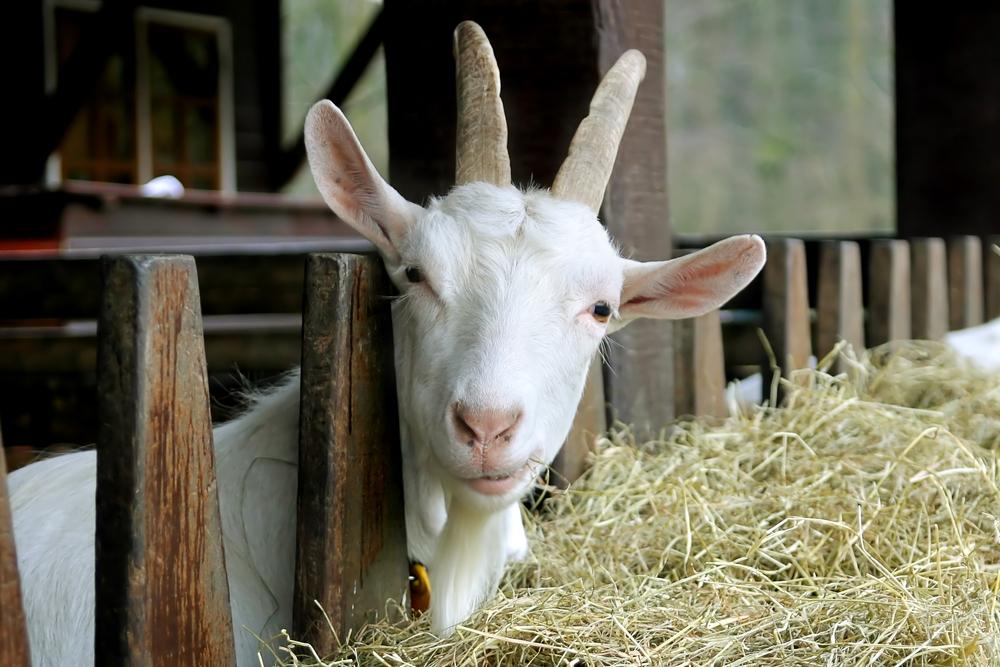As a BetterHelp affiliate, we receive compensation from BetterHelp if you purchase products or services through the links provided
Emotional support animals have become a beacon of relief for many facing psychological stress. Among these, goats are entering the spotlight as unique companions that offer more than just quirky antics and cute faces. Goats can form deep bonds with humans and provide emotional support comparable to more traditional support animals. Unlike pets, emotional support goats serve a specific therapeutic purpose for their owners, helping alleviate emotional or psychological symptoms.
While dogs and cats are the more conventional choices for emotional support animals, goats offer distinct advantages. Known for their intelligence, goats can be trained to perform specific tasks and adapt well to living with humans. More importantly, their playful and curious nature can bring joy and comfort to those in need. Careful considerations around care and training are essential, ensuring that these emotional support goats can fulfill their role effectively.
When deciding if an emotional support goat is right for you, understanding their care requirements, potential health benefits, and the legalities surrounding their status is essential. Securing the right breed and type and knowing how to navigate public spaces with your support goat will contribute to a rewarding relationship between you and your animal companion.
Key Takeaways
- Goats can provide significant emotional support, similar to more commonly recognized support animals.
- Their intelligence and playful nature can be particularly comforting for owners.
- Proper care, understanding legal implications, and the right training are crucial for benefiting from an emotional support goat.
Understanding Emotional Support Animals
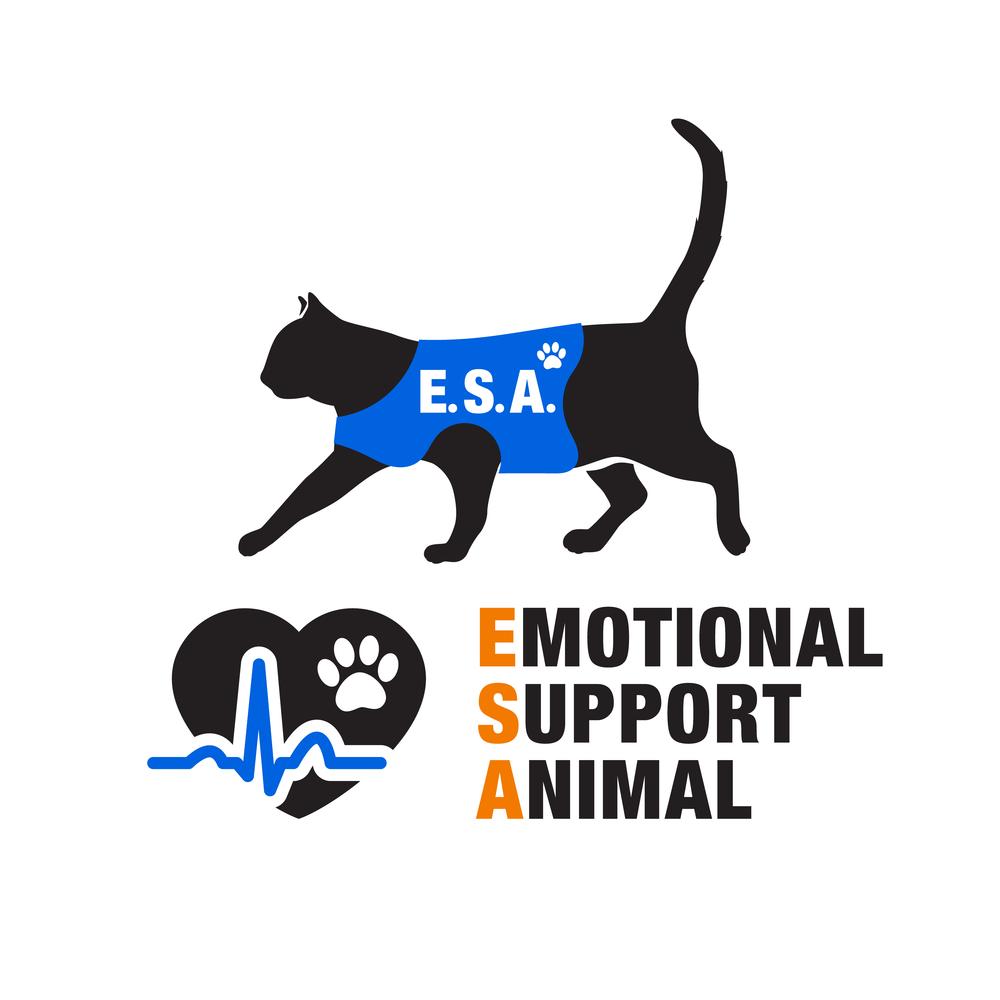 Emotional support animals offer comfort and support in the forms of affection and companionship for an individual suffering from various mental and emotional conditions. They are an integral part of the healing process for many.
Emotional support animals offer comfort and support in the forms of affection and companionship for an individual suffering from various mental and emotional conditions. They are an integral part of the healing process for many.
Legal Definitions
An emotional support animal (ESA) is different from a service animal. Unlike service animals, ESAs are not required to be trained to perform specific tasks related to a disability. Under the Americans with Disabilities Act (ADA), the term “service animal” is limited to dogs and, in some cases, miniature horses that are specifically trained. However, ESAs can be any type of animal and are recognized under the Fair Housing Act. This act requires accommodations for ESAs in housing facilities, even those with no-pet policies.
- Key Difference: ESAs don’t need specialized training; service animals do.
- Legal Recognition: ESAs are covered by the Fair Housing Act.
Benefits of Emotional Support Animals
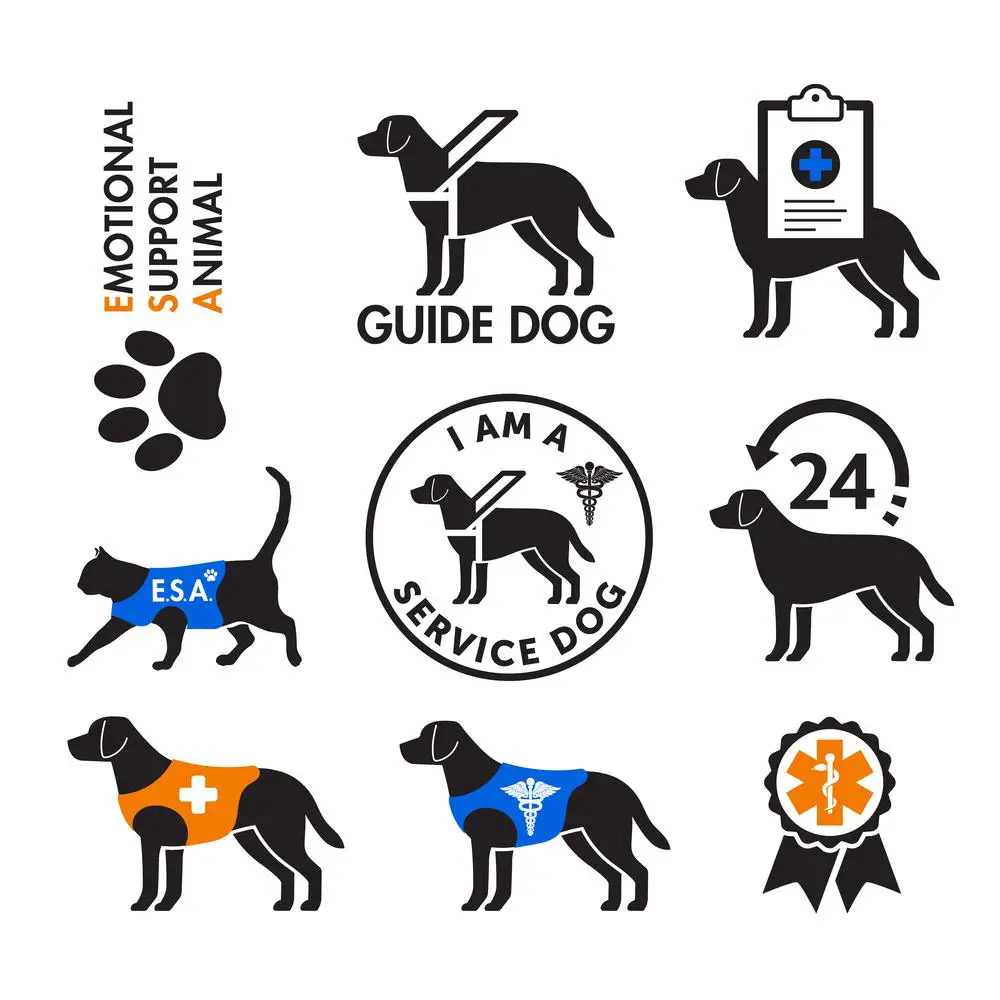
The main benefit of having an emotional support animal is the emotional stability they can provide you through their presence and affection. Research suggests that the mere presence of an ESA can lower anxiety and depression levels, providing a sense of comfort that can be hard to find elsewhere.
- Stress Reduction: Interaction with ESAs can decrease stress hormones.
- Social Engagement: ESAs can encourage outdoor activities and socialization.
- Comfort and Security: Their constant presence can lead to enhanced emotional stability.
Key Takeaways:
- ESAs offer invaluable emotional support that can aid in your mental health journey.
- They differ from service animals and are legally recognized under specific acts.
- The companionship of an ESA can have a positive impact on your emotional well-being.
The Unique Qualities of Goats as Support Animals
When you think of emotional support animals, goats might not be the first to come to mind. Yet, their unique behavioral traits and social dynamics make them surprisingly fitting for this role.
Behavioral Traits
Goats possess captivating behaviors that can benefit you as emotional support animals. They are naturally curious and always keen to explore their surroundings. This trait means that a goat constantly engages with you as a support animal, encouraging interaction and activity.
- Affectionate: Goats seek human companionship, often showing their fondness through nuzzling, following their owner, or wagging their tails—a sign of happiness in goats, just as in dogs.
- Personality: Each goat comes with a distinctive personality. Some might be more laid-back, while others are more energetic. Their varied personalities mean you can find a goat whose temperament aligns with your emotional needs.
Key Takeaway: Goats are affectionate and display a range of personalities capable of providing emotional support that aligns with your needs.
Social Dynamics
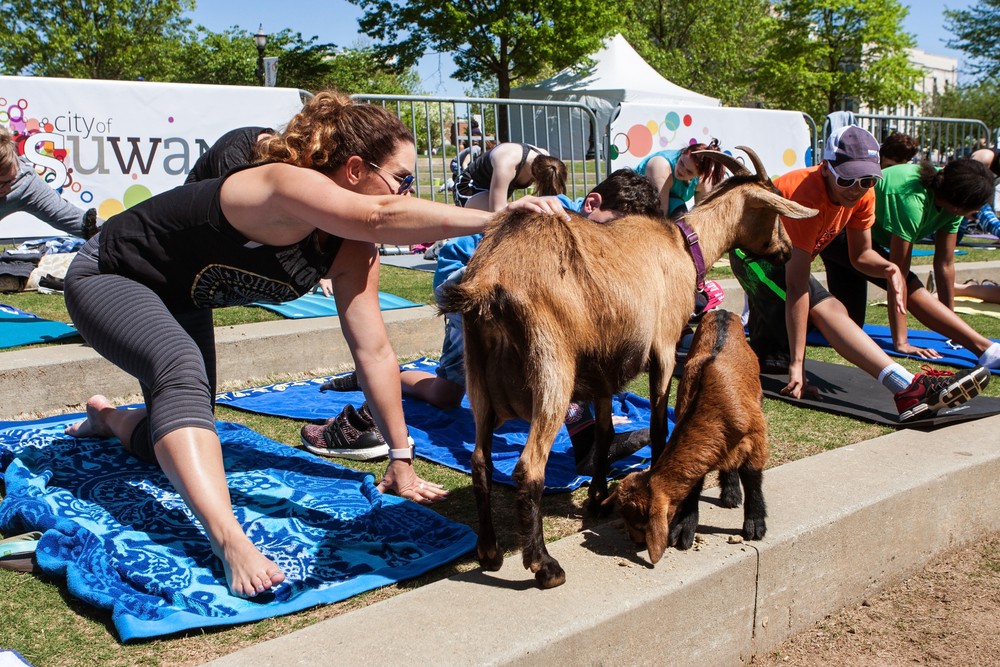 As social animals, goats have a social structure encompassing a hierarchy, which can be fascinating to observe and interact with. Their ability to form strong bonds with goats and humans is a standout attribute.
As social animals, goats have a social structure encompassing a hierarchy, which can be fascinating to observe and interact with. Their ability to form strong bonds with goats and humans is a standout attribute.
- Social Animals: Goats tend to live in groups and can form close-knit communities. They often enjoy the company of others, which means they can get along well in family settings or even offer companionship to other pets.
- Hierarchy: Understanding the herd’s hierarchy can help you foster a stable and happy environment for your goat. Recognizing their need for social order can assist you in managing multiple goats if you consider having more than one.
Key Takeaway: Engaging with goats’ social structures can enhance your understanding of relationships and provide a fulfilling companionship experience.
Emotional Support Goats Vs. Other Animals
When considering an emotional support animal, it’s crucial to understand how different animals, like goats, dogs, and cats, may fit into your life. Each species brings unique qualities to the table and can profoundly impact well-being.
Comparison with Dogs and Cats

Emotional Support Goats:
- Social Nature: Goats are herd animals looking for companionship, which makes them great if you desire an interactive buddy.
- Activity Level: They’re playful and need outdoor space to roam.
- Unique Bond: You’ll get a kick out of their curious and amusing behaviors that can brighten your day.
Dogs:
- Loyalty: Dogs are known for their loyalty and are highly trainable, which is perfect if you value obedience and close companionship.
- Variety: With breeds ranging from the tiny Chihuahua to the large Great Dane, there’s a dog for every lifestyle.
- Exercise Partner: They require regular walks, which is a plus if you want to get more active.
Cats:
- Independence: Cats are more independent and ideal if you have a smaller living space or a busy lifestyle.
- Low Maintenance: They’re usually litter-trained and groom themselves, requiring less day-to-day care.
- Comforting: Their purring and soft fur are considered by many to be soothing during stressful times.
Key Takeaway:
Your choice between goats, dogs, and cats will depend on your space, time commitments, and what kind of interaction you want in an emotional support companion.
Equines in Therapy
Emotional Support Goats:
- Size: Smaller than horses, which can be less intimidating and more manageable.
- Care: Easier daily care requirements than equines, suitable if you’re not ready for a larger commitment.
Horses (Equines):
- Equine Therapy: Horses are often used in animal-assisted therapy, helping individuals with various emotional and psychological challenges.
- Build Confidence: Working with horses can build confidence and assertiveness, as they require clear communication from their handlers.
- Physical Exercise: The physical aspect of riding and caring for horses can be therapeutic in itself, providing structured and engaging exercise.
Key Takeaway:
If you’re drawn to larger animals and have the resources, equine therapy with horses could be impactful. Otherwise, an emotional support goat might be the cuddly, manageable alternative you seek.
Health Benefits of Emotional Support Goats
Emotional support goats offer a unique blend of companionship and comfort, which can lead to substantial health benefits, touching your physical and mental well-being.
Physical Health Impacts
Lower Blood Pressure: Regular interaction with an emotional support goat can reduce blood pressure. The calming presence of these animals encourages a serene environment, which helps manage hypertension.
- Tip: Spend time grooming your goat; this repetitive activity can be soothing and help to lower blood pressure.
Release of Oxytocin: Engaging with your emotional support goat can trigger the release of oxytocin, often called the ‘love hormone.’ Oxytocin promotes a sense of happiness and relaxation, which can positively affect your physical health.
- Strategy: Create a routine that includes cuddling or playing with your goat to boost your oxytocin levels regularly.
Key takeaway: Being around an emotional support goat can help regulate some bodily functions tied to stress, like blood pressure, offering physical health benefits.
Mental Health and Well-being
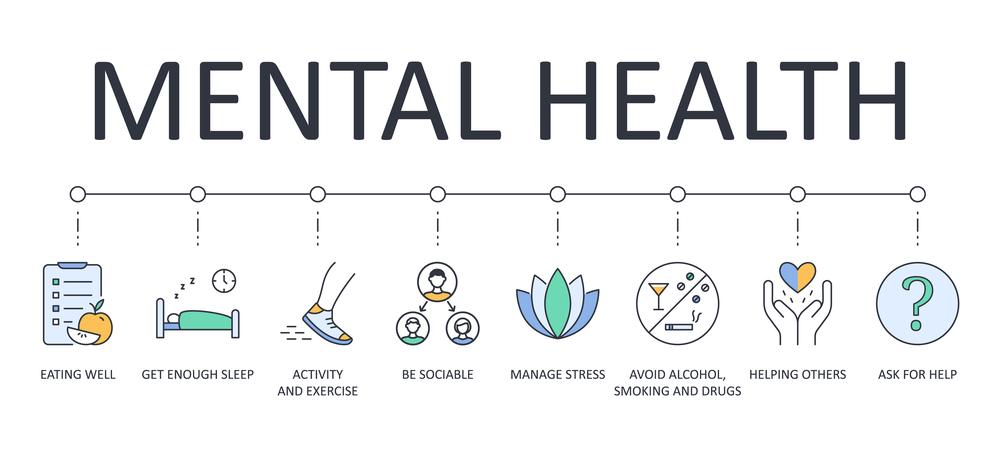 Comfort for Children with Autism: Goats can provide a non-judgmental companion for children with autism, helping them to engage and interact more confidently.
Comfort for Children with Autism: Goats can provide a non-judgmental companion for children with autism, helping them to engage and interact more confidently.
- Idiom in action: They act as a ‘bridge,’ making it easier for children to connect with their surroundings.
Mental Health Benefits: The presence of an emotional support goat can alleviate symptoms of anxiety and depression. Their playful behavior and affection can distract from negative thoughts and promote positive mental health.
- Strategy: When feeling overwhelmed, walking with your goat can be an excellent way to clear your mind and gain new perspectives.
Key takeaway: Whether looking for emotional support or gentle encouragement in social situations, an emotional support goat could be a balm for the mind, providing comfort and promoting positivity.
The Human-Goat Connection
When you bring a goat into your life for emotional support, you embark on a unique journey involving mutual affection and understanding. Goats can be remarkably attuned to human emotions, paving the way for a deep and empathetic bond.
Building a Bond
Interacting with your goat regularly is key to fostering a strong connection. Here’s how to start:
- Spend Quality Time Together: Like any friendship, time is the foundation. Whether it’s a daily walk or a quiet sit-down, these moments are priceless.
- Provide Care and Affection: Regular grooming and feeding meet their basic needs and show your goat you care.
Goats recognize and respond to their humans, often seeking out their company. Your affectionate touch and a routine of care will reinforce this bond.
Key Takeaway: Regular interaction and showing care build a lasting bond with your emotional support goat.
Understanding Goat Emotions
Recognizing your goat’s feelings enhances your connection. Here are a few tips to gauge their emotions:
- Observe Body Language: Ears up usually mean they’re content, while a lowered head might indicate distress.
- Listen to Vocalizations: Happy goats will hum or bleat softly, a sign they feel good around you.
It’s crucial to acknowledge these emotions with compassion. Understanding their feelings will help you respond better to their needs and strengthen your relationship.
Key Takeaway: Being in tune with your goat’s emotions deepens your bond and enhances the support they provide.
The Essentials of Goat Care
Caring for your emotional support goat involves a focus on nutrition and comfort, ensuring their needs for food and roaming space are met. Let’s dive right in!
Feeding and Nutrition
Your goat’s diet is a delicate balance where each meal should pack a punch regarding nutrients. Fresh hay, various greens, and a well-measured amount of grains keep them healthy and happy. Here’s a snapshot of what a typical diet should include:
- Hay: Forms the bulk of their diet; alfalfa hay is incredibly nutritious.
- Grains: Offer in moderation, as too much can cause health issues.
- Vegetables and Fruits: Adds variety and essential vitamins.
- Fresh Water: Access at all times is a must.
- Minerals: Loose minerals suited for goats can be offered free choice.
Ensure that you adjust the diet for the life stage of your goats, whether they’re a playful kid or a mature adult.
Key Takeaway: A balanced diet is vital for your goat’s health — aim for quality hay, controlled grain portions, and a splash of veggies for a happy goat.
Exercise and Space Needs
Goats thrive on interaction and space to explore. To keep them fit and prevent boredom, give them plenty of room to roam and toys to play with. Here’s how you can cater to their exercise and space needs:
- Secure Fencing: They provide a range to roam while keeping them safe.
- Climbing Structures: Goats love to climb, so things like ramps and rocks are great.
- Toys: Rotating toys keeps things fresh — think balls and ropes.
Exercise is about physical health and mental well-being, making it a cornerstone of caring for your emotional support goat.
Key Takeaway: Ample space to roam and engaging toys play a crucial role in your goat’s exercise regimen, keeping them both physically agile and mentally sharp.
Training Emotional Support Goats
Emotional support goats can provide tremendous comfort and companionship. Proper training ensures they are well-behaved and can navigate social situations effectively.
Behavioral Training
Behavioral training is crucial for your emotional support goat to act appropriately in various settings. It’s not just about teaching your goat commands but also about reinforcing positive behavior.
- Basic Commands: Start with simple commands like “come,” “stay,” and “leave it.” Be consistent with your commands and always reward your goat with treats or affection for obeying.
- Handling: Introduce handling exercises to get your goat used to being touched in different areas. This can include gently touching their hooves, back, and around the face.
- Avoiding Negative Behavior: Redirect any undesirable behavior like nipping or jumping. Instead of scolding, provide an alternative action that can be positively reinforced.
Key Takeaway: Consistent training and positive reinforcement lead to a well-behaved goat who understands how to behave in various situations.
Socialization
Socialization helps your goat adapt to new experiences and environments while staying calm and composed.
- Introducing New People: Gradually introduce your goat to various people, including those with different appearances and behaviors.
- Meeting Other Animals: If your goat will be around other animals, start socialization early to ensure they can be calm and non-aggressive around potential animal companions.
Key Takeaway: Adequate socialization provides your emotional support goat with the ability to handle different social settings comfortably.
Goats in Various Therapy Settings
Therapy goats are becoming increasingly embraced for their comforting presence in various care environments.
Animal Therapy Programs
Animal therapy programs, such as those involving goats, have gained traction as a therapeutic tool. Therapy goats provide residents companionship and joy at nursing homes and care homes. These programs often involve:
- Regular, scheduled visits from therapy goats
- One-on-one interaction opportunities
- Group activities, enhancing social interaction
Key Takeaway: Therapy goats offer a non-traditional form of emotional support, boosting morale and social interaction in settings that care for the elderly or those needing extra attention.
Visitation and Therapy Interventions
At hospitals and rehabilitation centers, visitation sessions with therapy goats can offer patients a welcome distraction from their routines. Therapy interventions might include:
- Goat yoga sessions, combining physical therapy with the calming presence of goats
- Structured therapy sessions where patients engage in care activities for the goats
Patients often experience a reduction in stress and an increased sense of well-being. The presence of a therapy goat can brighten the atmosphere, making recovery spaces feel more relaxed and home-like.
Key Takeaway: Engaging with therapy goats can enhance traditional therapeutic practices, often leading to improved patient outcomes in recovery and rehabilitation.
Emotional Support Goats and Public Accessibility
When you have an emotional support goat to help manage anxiety or other emotional difficulties, navigating public accessibility can be a bit tricky. Below, you’ll find specific information to make traveling and visiting public places with your support goat smoother and less stressful.
Travel Considerations
Traveling can stir up anxiety, but your emotional support goat is there to help. Here’s what you need to know:
- Air Travel: Before heading to the airport, check the airline’s policy on emotional support animals. Not all airlines permit goats on board, even for emotional support. You may need to present a letter from a licensed mental health professional.
- Documentation: Always carry your goat’s Emotional Support Animal (ESA) letter and any additional required documents.
- Before the Flight: Notify the airline well in advance. Some require at least 48 hours’ notice.
- Check-In: Arrive early to discuss seating arrangements and ensure a smooth boarding process.
- Public Transport: Local regulations vary greatly, but many public transport systems allow emotional support animals if well-behaved and leashed.
- Advance Planning: A quick call to the transport service can clarify their policies.
- Off-Peak Hours: Consider traveling during less busy times to reduce stress for you and your support goat.
Key Takeaway: Always research and prepare before traveling; being informed can save time and hassle.
Access to Public Spaces
Navigating public spaces with your emotional support means staying informed and respecting the rules to create a positive experience for everyone involved.
- Public Places Policy: Each venue or establishment sets its policy. Some may welcome emotional support animals, while others might have restrictions.
- Inquire First: Reach out to the place you plan to visit beforehand to understand their policy on emotional support animals.
- Visibility: Identify your goat as an emotional support animal to ease access where permitted.
- Behavior and Etiquette: A well-mannered goat is more likely to be welcomed in public spaces.
- Leash and Harness: Keep your goat on a leash or harness to maintain control.
- Hygiene: Ensure your goat is clean and presentable to make a good impression.
Key Takeaway: Familiarize yourself with the policies of the places you visit, and always keep your goat well-behaved and presentable.
Legislation and Emotional Support Goats
Navigating the laws surrounding emotional support goats can ensure you live harmoniously with your furry friend while abiding by legal guidelines.
Housing Rights
Under the Fair Housing Act (FHA), individuals with a disability may have the right to keep an emotional support goat in their residence, even in buildings that generally prohibit pets. The key points to note are:
- You must have a documented disability.
- A licensed therapist or medical professional should provide a letter stating the goat’s role in your treatment.
- Landlords are often required to make reasonable accommodations for emotional support animals.
Here’s a quick checklist for housing with your emotional support goat:
- Documentation: Get an official letter from your therapist.
- Inform: Notify your landlord about your need for an emotional support goat.
- Clarify: Discuss any restrictions or conditions upfront.
Key Takeaway: With the proper documentation, your emotional support goat can be a legitimate resident under the FHA.
Public Accommodation
Regarding public spaces, the Americans with Disabilities Act (ADA) does not grant the same access rights to emotional support animals as to service animals. That said, here’s what you should keep in mind:
- Service Animals vs. Emotional Support Animals: The ADA distinguishes between the two, providing public access only for service animals.
- Emotional support animals, including goats, don’t have the right to accompany their owners into all public areas.
However, some places may allow emotional support goats at their discretion. It’s always best to check specific policies beforehand.
Key Takeaway: While public access may be limited, your emotional support goat can still support you in many private and general settings.
Breeds and Types of Emotional Support Goats
When looking for an emotional support goat, it’s essential to understand the different breeds and their unique characteristics to find the perfect companion for your needs.
Characteristics of Different Breeds
The Boer goat is well-regarded for its docile nature, often making it a top choice for emotional support. Boer goats are known for their affectionate demeanor and ease of care, which is ideal when you’re looking for a calming presence.
- Boer: Affectionate, calm, requires moderate grooming
- Wethers: Neutered males known for being exceptionally gentle and friendly
- Bucks: Male goats which can be more challenging due to their strong-willed nature; not typically recommended for emotional support
- Feral Goats: Not commonly used for emotional support due to their wild nature and need for an adaptative environment
Each breed has pros and cons, so it’s crucial to consider which qualities matter most to you.
Choosing the Right Goat
Selecting the right goat is much like picking a new friend. Here are some tips to guide you:
- Look for a goat that is a Boer or a weatherman if you want a calmer temperament.
- Consider the size of the goat and the space you have available.
- Think about the care requirements, such as grooming and exercise needs.
- Interaction with the goat before adoption can explain its personality and suitability.
Remember, your connection with the goat is the key to a strong emotional support bond.
Key Takeaway: Choosing a goat with a gentle and compatible personality is essential for forming a therapeutic bond.
Frequently Asked Questions
In this section, you’ll find answers to some of the most common questions about emotional support goats, including costs, where to find them, and their training and certification process.
How much does it typically cost to acquire an emotional support goat?
Acquiring an emotional support goat can vary in cost, typically from $100 to $500, depending on the breed and any additional training the goat has received. Remember, you’ll also need to consider the ongoing expenses for their care.
Where can I find an emotional support goat for purchase?
You can find emotional support goats through breeders who specialize in therapy animals or at local farms that may offer goats with calm demeanors suitable for emotional support. Animal rescues and shelters occasionally have goats available, too. Always visit the goats in person to ensure they fit your needs well.
What are the training requirements for an emotional support goat?
Training a goat for emotional support involves basic obedience and socialization to ensure they behaves well around people and in various environments. Unlike service animals, emotional support goats do not require specific task training. Working with a trainer with experience with therapy animals is beneficial.
How do I get my goat certified as a therapy animal?
To get your goat certified as a therapy animal, complete an animal-assisted therapy program that includes you and your goat. Once completed, you can register with a recognized therapy animal organization. Check their requirements as they differ by region and organization.
Can goats be effective in providing emotional support for horses and other animals?
Yes, goats can be companions for horses and other farm animals, providing comfort and reducing stress. Their presence can be soothing due to their social and curious nature. Use gentle introductions when pairing your goat with other animals to ensure they bond well.
In comparison to other animals, how effective are goats for emotional support and anxiety relief?
Goats are known for their friendly and playful nature, which makes them a great option for emotional support and anxiety relief. Even though they are not as popular as cats or dogs, they can be equally affectionate and responsive to human emotions. Their supportive presence is unique and brings comfort to many people.
- 3 Ways Wearing a Hat Can Help Lower Your Stress Levels - April 19, 2025
- Breaking the Silence: Why Men’s Mental Health Matters More Than Ever - April 15, 2025
- How to Transform a Home’s Patio Space into a Relaxing Space - March 23, 2025
This site contains affiliate links to products. We will receive a commission for purchases made through these links.

